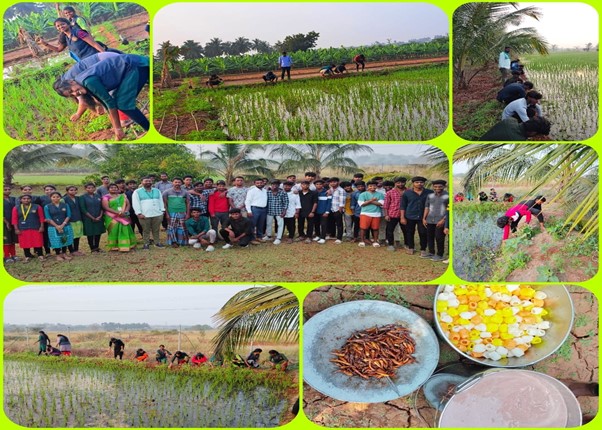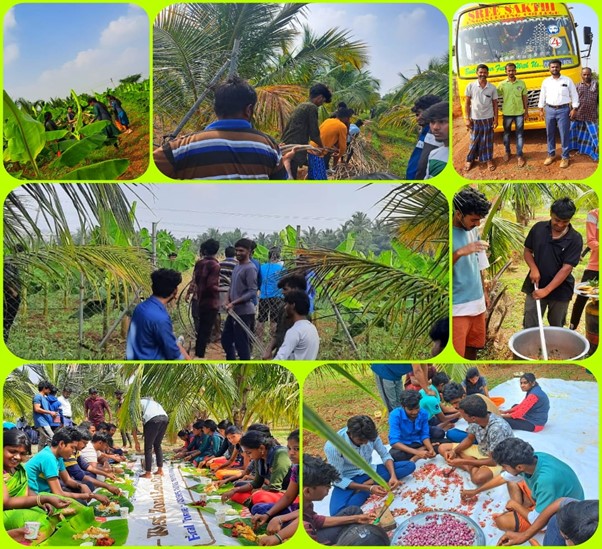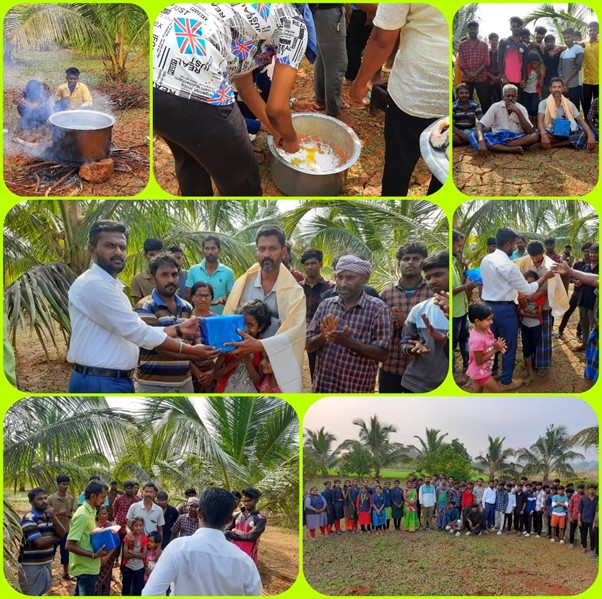NSS-Naanum Vivasayiyum
PROGRAM : NAANUM VIVASAYIYUM
(OUTBOUND LIFE SKILL TRAINING PROGRAM)
DATE : 10.02.2024
VENUE : SUMAITHANGI VILLAGE, IRUMBORAI
PROGRAM OBJECTIVE
Sree Sakthi Engineering College, Karamadai, Affiliated to Anna University, Chennai organized an one day Outbound Life Skill training program entitled ‘NAANUM VIVASAYIYUM’ in Sumaithangi village, Irumborai. Totally 52 NSS volunteers of final year engineering students along with 2 program officers & 4 program coordinators participated in the event. The primary goal of the visit was to provide college students with hands-on experience and insights into agricultural practices, sustainability, and the challenges faced by farmers.
ACTIVITIES
Introduction to Farming Practices
The farmers of the Sumaithangi village provided an overview of their farming methods, including crop rotation, irrigation techniques, and pest management strategies.
Field Tour
Students were guided through different sections of the farm, observing various crops in different stages of growth. They learnt about the importance of soil fertilization, proper plantation techniques, and the impact of weather conditions on agriculture.
Interactive Sessions
Throughout the visit, students engaged in discussions with the farmers asking questions about farming practices, challenges, and opportunities in the agricultural sector. They learnt about sustainable farming practices, the use of technology in agriculture, and the role of farmers in food production.
Hands-on Activities
Students gained the opportunity to participate in some farm activities, such as planting seeds, harvesting crops, and operating farm machinery.
Discussion on Challenges
The farmers shared their experiences and challenges as a farmer, including market fluctuations, environmental concerns, and labour shortages. This lead to meaningful conversations among students about the complexities of modern agriculture and the importance of supporting local farmers.
Cooking
The students prepared traditional food on their own. It enabled the students to show their teamwork and coordination.
KEY LEARNINGS
Understanding the importance of sustainable farming practices for long-term environmental and economic viability.
Gaining insight into the daily challenges faced by farmers and the resilience required to overcome them.
Appreciating the interconnectedness of agriculture, food production, and global food security.
Recognizing the role of technology and innovation in shaping the future of farming.
Fostering a greater appreciation for the hard work and dedication of farmers in feeding the population.
CONCLUSION
The visit to farm land made our college students to connect theoretical knowledge with real-world practices in agriculture. It was an enriching experience that deepened their understanding of the agricultural sector and its significance in society. The interactive nature of the visit encouraged active participation and meaningful discussions, leaving a lasting impression on the students. Such experiential learning initiatives play a crucial role in shaping the future generation of informed consumers, policymakers, and agricultural professionals.





